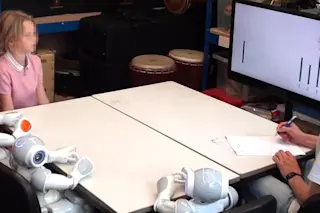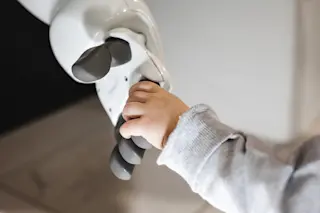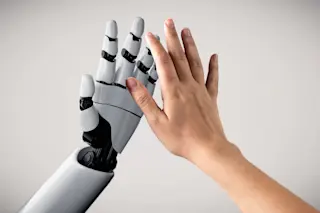When kids were asked if certain lines are longer or shorter than others, they deffered to the robots' answers. (Credit: Tony Belpaeme / Ghent University) Those of us of a certain age may recall the D.A.R.E. program wafting through our classrooms like so many puffs of smoke. In addition to the evils of drugs and alcohol, and the importance of just saying no, the program highlighted the power of peer pressure. No matter how much our friends and classmates might say something’s cool, we shouldn’t be swayed if we don’t want to try it! It turns out that kids aren't just susceptible to regular old peer pressure. According to a study published Wednesday in Science Robotics, apocalyptically titled “Children conform, adults resist,” they’re even vulnerable to robot peer pressure. Truly, the future has arrived.
The social robot used to peer pressure kids in the study. (Credit: Vollmer et al., Sci. ...














